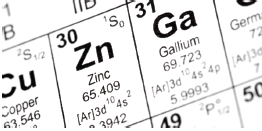A double-blind, placebo-controlled study with 224 postmenopausal women was conducted to determine whether increased copper (Cu) and zinc (Zn) intakes would reduce the risk for bone loss. Women with similar femoral neck T scores and BMI were randomly assigned to two groups that were supplemented daily for two years with 600 mg calcium (Ca) plus maize starch placebo or 600 mg Ca plus 2 mg Cu and 12 mg Zn. Bone mineral contents, densities, and T scores (determined by dual-energy X-ray absorptiometry) decreased from baseline to year two and the greatest decreases occurred with Cu and Zn supplementation. Based on five-day food diaries, the negative effect was caused by Zn and mainly occurred with Zn intakes ≥ 8.0 mg/d. With Zn intakes < 8.0 mg/d, supplementation prevented significant decreases in whole-body bone densities and T scores. Food diaries also indicated that magnesium intakes < 237 mg/d, Cu intakes < 0.9 mg/d and Zn intakes < 8.0 mg/d are associated with poorer bone health. The findings suggest that Zn supplementation may benefit bone health in postmenopausal women with usual Zn intakes < 8.0 mg/d but not in women consuming adequate amounts of Zn. Br J Nutr. 2011 Jul 1:1-8. PMID: 21733304
Home Research News Zinc (but not copper) influence whole-body bone density, mineral content, and T...









